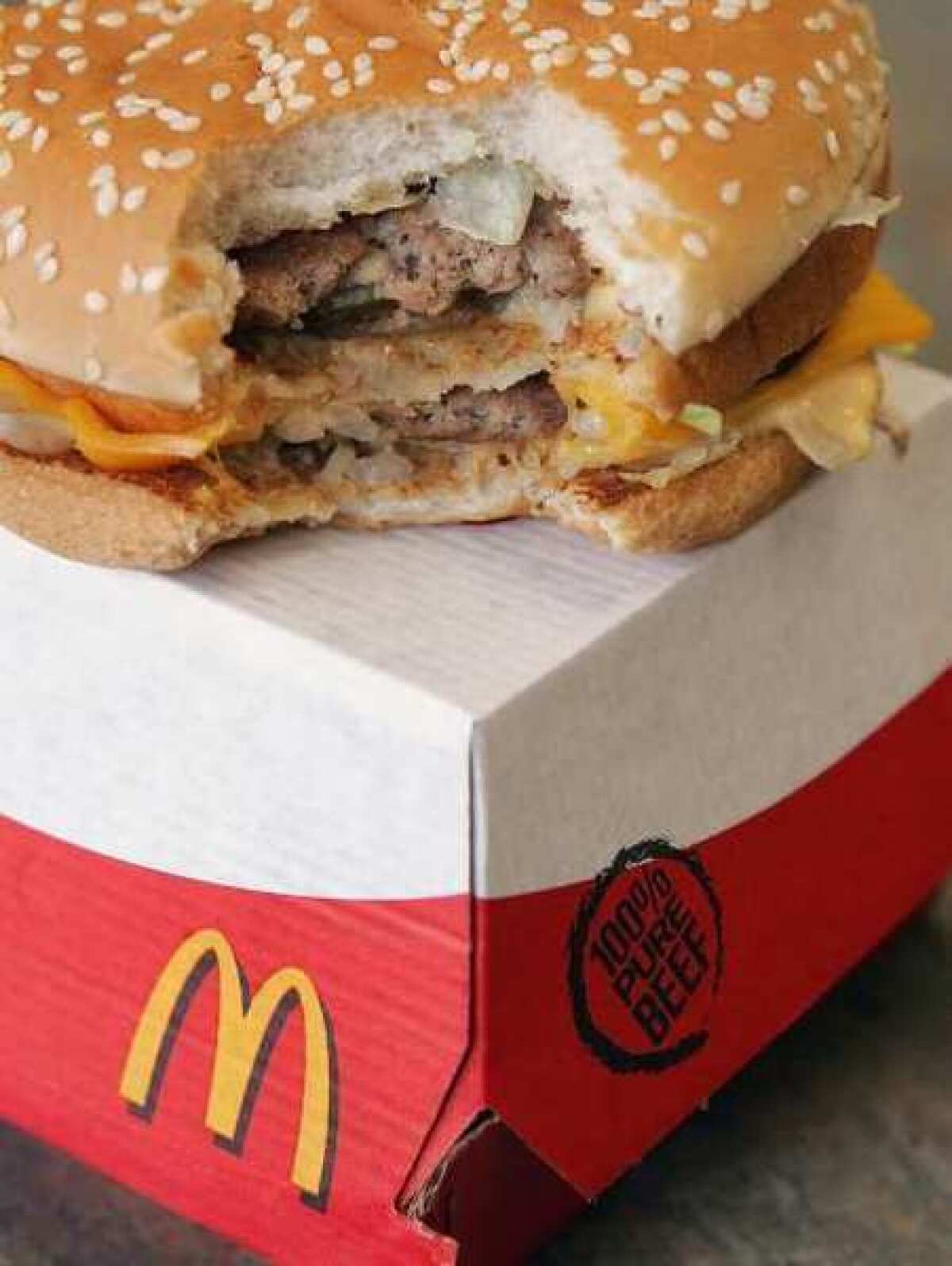Animal cruelty: Why McDonald’s, In-N-Out, Wall Street now say no

In-N-Out, McDonald’s Corp., Jack in the Box, Burger King and other chains quickly cut ties with Central Valley Meat Co. this week after undercover footage from an animal welfare group showed cows at the California slaughterhouse seemingly tortured and otherwise mistreated.
McDonald’s said the percentage of its meat that came from the Central Valley slaughterhouse was in “the low single digits.”
“Upon learning about USDA’s decision to suspend CVM, we took immediate action and suspended supply from this facility, pending further investigation,” the hamburger giant said in a statement. “There are behaviors in the video which appear to be unacceptable and would not adhere to the standards we demand of our suppliers.”
The chain continued, saying it “cares about how our food is sourced and we have a long history of action and commitment to improve the welfare of animals in our supply chain.”
Major food chains are now more eager than ever to abandon suppliers deemed to be cruel to animals. Denny’s, Wendy’s, Burger King and more have pledged this year to wean themselves of pork raised in cramped gestation crates and eggs laid by chickens crowded in cages.
[Updated, 10:30 a.m. Aug. 23: Jack in the Box said its restaurants did not use any beef from Central Valley Meat produced during the alleged violations, according to spokesman Brian Luscomb. But the slaughterhouse was an approved supplier to one of the burger chain’s vendors.
“We have suspended Central Valley Meat Co. from our approved vendor list,” Luscomb said. “The decision is not expected to impact our beef supply.”]
[Updated, 11:50 a.m. Aug. 23: The slaughterhouse was also an indirect supplier to Burger King Corp., according to a statement from Diego Beamonte, vice president of global quality for the chain.
“BKC took immediate action and removed Central Valley Meat Co. from its list of approved raw-material suppliers,” he said. “BKC no longer directly or indirectly purchases any raw materials from the company.”]
Earlier this week, In-N-Out dumped the Central Valley slaughterhouse, saying it “would never condone the inhumane treatment of animals.”
PHOTOS: Fast food gets outrageous
The larger focus on creature comfort may be due to the rise in gruesome images and video of mistreatment, often distributed over ever-widening social medial networks. This week’s footage from advocacy group Compassion Over Killing features cows being electrically shocked, sprayed with hot water or shot in the head and then suffocated by workers standing on their faces.
“No company wants their brand associated with the type of horrible abuse we see regularly documented in the whistle-blowing exposes we continue to see coming out of factory farms and slaughter plants,” said Paul Shapiro, vice president of farm animal protection for the Humane Society of the United States.
But corporate America’s growing aversion to suppliers outed as animal abusers has other sources as well. Consumers are more interested in the provenance of their food – and increasingly prefer meat with a local, organic and humane pedigree.
Citigroup, in a 2008 report, referred to animal cruelty concerns as a “potential headline risk that could tarnish the image of restaurant companies.” That year, research group Technomic found that restaurant patrons consider animal welfare to be the third most important social issue behind health insurance and living wages.
And with food scares rampant (witness the mad cow and pink slime controversies earlier this year), customers are more suspicious of animals that appear to be sick or lame.
The food industry, and especially quick service companies, is making “a very big push” to fight its reputation for lack of transparency, according to Wedbush Securities analyst Nick Setyan.
In some cases, such as Chipotle, touting sourcing strategy “can help your brand and, in turn, your sales,” Setyan said. Hence McDonald’s recent advertisements featuring beef, lettuce and tomato farmers.
“So absolutely, fast-food companies care about this type of negative perception and are increasingly taking steps to address it,” he said.
Brian Coelho, president of Central Valley Meat, released a statement earlier this week.
“Ensuring that the livestock we process are treated humanely is critically important,” according to the statement. “Our company seeks not just to meet federal humane handling regulations, but to exceed them.”
[Updated, 10:10 a.m. Aug. 23: Janet M. Riley, senior vice president of public affairs for the American Meat Institute, cautioned that while the video “appears to contain areas of concern,” the narration “misleads the viewer into believing that these animals are conscious, when they are not.”
“While this video may be raising concerns among some viewers, the meat industry has a demonstrated commitment to handling animals humanely,” Riley said.
She added: “Humane treatment of livestock is ethically appropriate, good for livestock and has the added benefit of producing higher quality meat products. These are facts we recognize and embrace.”]
ALSO:
Spam maker Hormel to treat its pigs better
McDonald’s wants better treatment for pregnant pigs
Burger King promises to use cage-free eggs and pork
Denny’s switches to pigs that aren’t housed in cramped crates
McDonald’s pork provider Smithfield pledges gestation crate phase-out
Follow Tiffany Hsu on Twitter and Google+
More to Read
Inside the business of entertainment
The Wide Shot brings you news, analysis and insights on everything from streaming wars to production — and what it all means for the future.
You may occasionally receive promotional content from the Los Angeles Times.









